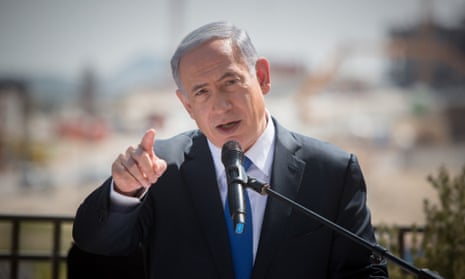Israeli prime minister, Binyamin Netanyahu, has said he regrets saying during last week’s elections that that “Arab voters are heading to the polls in droves” in an attempt to mobilise voters.
Addressing an event at his official residence for community leaders from the Arab sector, Netanyahu said: “I know the things I said a few days ago
hurt some citizens in Israel, the Israeli Arab citizens. This was not
my intention and I am sorry.”
He went on to say that he sees himself as “prime minister of all Israeli citizens” and boasted about the large investments he has made in the Arab sector.
The Joint List, a coalition of of Israel’s Arab parties that is now the third largest group in the Knesset, did not accept the apology.
“Unfortunately Netanyahu and his government’s racism did not begin and end with that incendiary statement. His expression of regret is nothing more than an empty gesture intended to enable his and his government’s continued racist governance,” Joint List spokesperson Emilie Moatti said.
Netanyahu’s comments were sharply criticised by President Obama over the weekend, who told the Huffington Post that rhetoric such as that used by the Israeli PM “starts to erode the meaning of democracy in the country”.
Netanyahu has also flip-flopped on his declaration in the final days of his campaign that there would be no Palestinian state under his watch.
In interviews with MSNBC, Fox and NPR, Netanyahu said he meant that the conditions were not ripe at present. “I haven’t changed my policy,” he said. “What has changed is the reality.”
In one interview, Netanyahu implied he remained open to the possibility of new peace talks, saying Israel would “need the recognition of [a] Jewish state and real security in order to have a realistic two-state solution”.
The White House chief of staff emphasised the United States’ enduring commitment to a two-state solution on Monday and said Netanyahu’s comments disavowing that strategy cannot be ignored.
“We cannot simply pretend that these comments were never made,” Denis McDonough, one of Obama’s top advisers, told a liberal Jewish American group.
He said the United States has expended much energy on diplomatic efforts promoting a two-state solution and that was why the Israeli leader’s comments last week “were so very troubling”.
